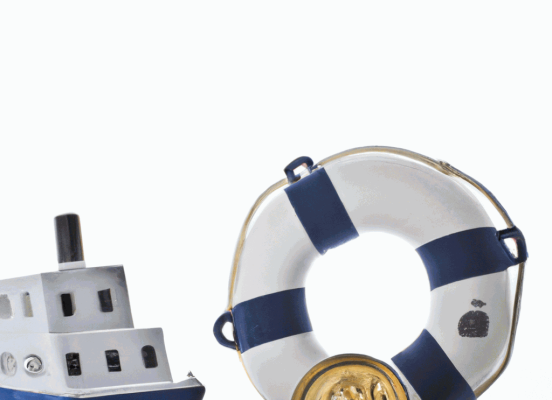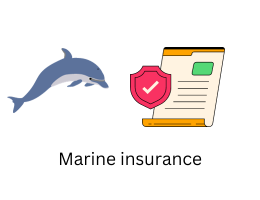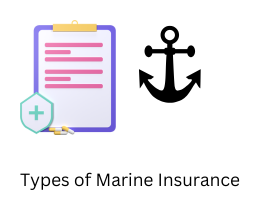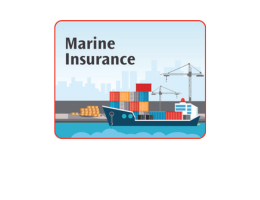
Marine Insurance
Marine Insurance Warranties
- By admin --
- Tuesday, 07 Mar, 2023
A bond is that by which the assured undertakes that some particular thing shall or shall not be done, or that some conditions shall be fulfilled, or whereby he affirms or negatives the actuality of a particular state of data.
Guaranties are the statement according to which an insured person promises to do or not to do a particular thing or to fulfill or not to fulfill a certain condition, and it isn't simply a condition but a statement of fact.
guaranties are more roundly claimed upon than the conditions because the contract comes to an end if a bond is broken whether the bond was material or not.
In case of condition or representation, the contract comes to an end only when these were material or important. guaranties are of two types; Express guaranties, and Implied guaranties.
Express Warranties
Express guaranties are those guaranties that are expressly included or incorporated in the policy by reference.
Implied Warranties
These aren't mentioned in the policy at each but are tacitly understood by the parties to the contract and areas completely binding as express guaranties.
guaranties can also be classified as( 1) Affirmative, and( 2) Promissory. An affirmative bond is a pledge which the insured gives to live or not to live certain data.
A promissory bond is a pledge in which the insured pledges that he'll do or not do a certain thing up to the period of the policy. In marine insurance, inferred guaranties are veritably important.
Seaworthiness of Ship
The bond implies that the boat should be seaworthy at the inception of the passage, or if the passage is carried out in stages at the inception of each stage.
This bond implies only passage programs, though similar programs may be of a boat, weight, freight, or any other interest. There's no inferred bond of seaworthiness in time programs.
A boat is seaworthy when the boat is suitably constructed, duly equipped, officered and manned, sufficiently fueled and provisioned, proved, and able of opposing the ordinary strain and stress of the passage.
The seaworthiness will be more clear from the following points:
- The standard to judge the seaworthiness isn't fixed. It's a relative term and may vary with any particular vessel at different ages of the same passage. A boat may be impeccably seaworthy for a Trans- ocean passage, and a boat may be suitable for summer but may not be suitable for downtime. There may be different norms for a different ocean, for different weight, for different destinations, and so on.
- Seaworthiness doesn't depend simply on the condition of the boat, but it includes the felicity and acceptability of her outfit, acceptability, and experience of the officers and crew.
- At the inception of the trip, the boat must be able of opposing the ordinary strain arid stress of the ocean.
- Seaworthiness also includes “ Cargo- Worthiness. ” It means the boat must be nicely fit and suitable to cany the kind of weight ensured. It should be noted that the bond of seaworthiness doesn't apply to the weight, and it applies to the vessel only. There's no bond that the weight should be seaworthy, ft can not be anticipated from the weight- proprietor to be well- clued in the matter of shipping and overseas trade. So, it's admitted in the seaworthiness clause that the weight would be seaworthy of the vessel and would not be raised as the defense to any claim for loss. by insured threats.
It should be noted that the ship should be seaworthy at the port of commencement of voyage or gt the different stages if the voyage is to be completed in stages.
Legality of Venture
This bond implies that the adventure ensured shall be legal and that so far as the assured can control the matter, it shall be earned out in the legal manner of the country. Violation of foreign laws doesn't inescapably involve the breach of the bond.
There's no inferred bond as to the nation of a boat. The inferred bond of legitimacy applies to total programs, passage, or time. Marine programs can not be applied to cover illegal passages or adventures. The assured could have no right to claim a loss if the adventure was illegal.
An illustration of an illegal adventure may be trading with an adversary, violating public laws, smuggling, breach of the leaguer, and analogous gambles banned by law.
Illegality mustn't be confused with the illegal conduct of the third party,e.g., barratry, theft, rovers, rovers. The disclaimer of this bond isn't permitted as it's against public policy.
Other Implied Warranties
There are other warranties that must be complied with marine insurance;
No Change in Voyage
When the destination of the passage is changed designedly after the morning of the threat, this is called a change in the passage.
In the absence of any bond negative to this one * the insurer quits his responsibility at the time of change in the passage. The time of change of passage is determined when there's determination or intention to change the passage.
No Delay in Voyage
This bond applies only to passage programs. There shouldn't be a detention in starting the passage and shiftlessness or detention during the trip. This is an unexpressed condition that adventure must begin within a reasonable time.
also, the insured adventure must be dispatched within a reasonabletime.However, the insurer may avoid the contract in the absence of any legal reason, If this bond doesn't misbehave.
No deviation
The liability of the insurer ends in the divagation of a trip. divagation means junking from the common route or given path. When the boat deviates from the fixed passage without any legal reason, the insurer quits his responsibility.
This would be immaterial that the ship returned to her original route before a loss. The insurer can quit his responsibility only when there is the actual deviation and not the mere intention of the deviation.
Exceptions to warranties in marine insurance
There are the following exceptions to delay and deviation warranties:
- Divagation or detention is authorized according to a particular bond of the policy.
- When the detention or divagation was beyond the reasonable approach of the master or crew.
- The divagation or detention is exempted for the safety of the boat or insured matter or mortal lives.
- divagation or detention was due to barratry.





